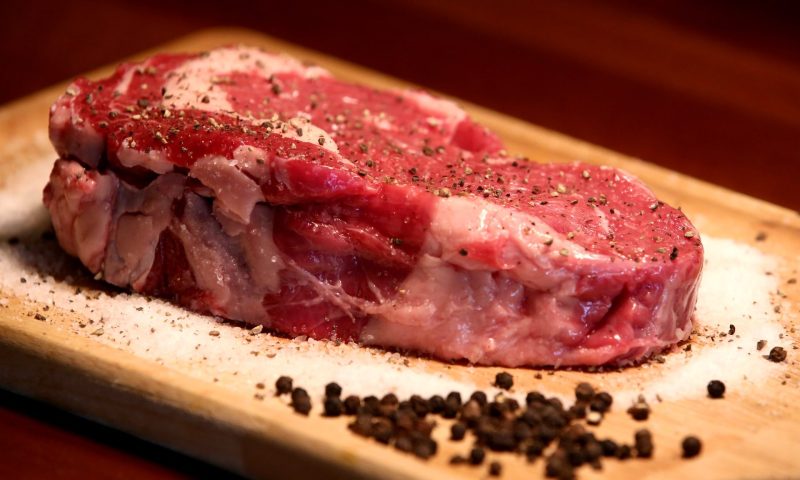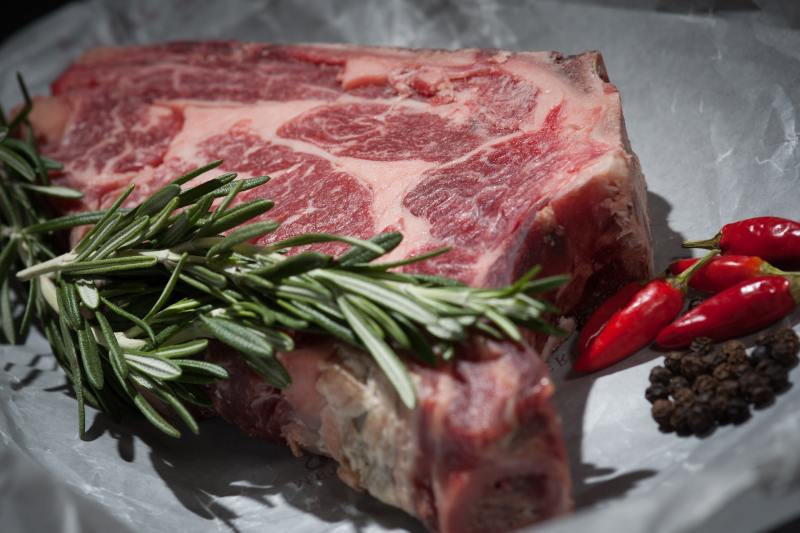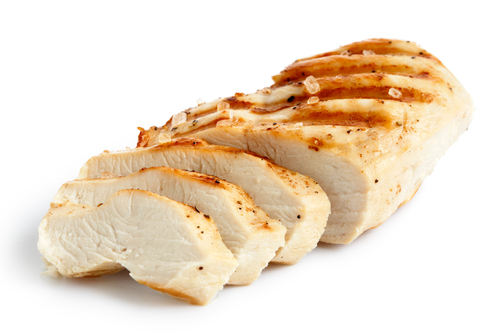
Taking the ketogenic diet to a new level is the newest diet trend, the carnivore diet. The carnivore diet, or all-meat diet, involves eating only animal products, or in some cases, only red meat. On this diet, a person completely avoids all plant products, including vegetables, fruits, grains, and any item that contains carbohydrates.
Different from the popular keto diet, which focuses on keeping carbohydrates under 20 to 50 carbs a day, the carnivore diet is a zero-carb diet. Proponents of the carnivore diet have touted dozens of benefits of this diet, from weight loss to improved autoimmune conditions. But is this all-animal protein diet right for you?

Foods consumed on carnivore diet meal plan
The carnivore diet is a general term for this diet approach, however, there are a few different ways people can try this diet. Most people on the carnivore diet allow only animal-based proteins, including red meat, poultry, eggs, full-fat dairy, and any other food that comes from animal products. This “relaxed” form of the diet also allows spices, and in some cases, coffee.
Some people may take a stricter approach to the carnivore diet, consuming only water, salt, and red meat. Both forms of the carnivore diet are severely restrictive, requiring a person to be very careful about the foods they consume. Foods that typically make up a large portion of a healthy diet, such as vegetables, nuts, seeds, and fruits, must be completely avoided. In turn, this can make a carnivore diet meal plan difficult to stick to in the long term.

Benefits of a carnivore diet
While there is limited scientific research that investigates the power of the carnivore diet, many people have shared anecdotal evidence of their results on the carnivore diet. The carnivore diet benefits are similar to the benefits of the ketogenic diet, forcing the body into a fat-burning state of ketosis. However, on a carnivore diet, a person consumes more protein than a standard ketogenic diet ratio would allow.
Weight loss and blood sugar management
For many, weight loss is a driving force to begin the carnivore diet. With the power to effectively regulate blood sugars and reduce insulin levels, it’s clear that the carnivore diet holds the potential to be used as an effective tool for weight management. For people with type 2 diabetes, the carnivore diet may help reduce A1c levels, supporting the management of this chronic disease.
In addition to helping improve and stabilize blood sugars, the carnivore diet also eliminates foods notorious for causing weight gain, such as refined and processed carbohydrates and foods high in sugar.
Autoimmune disease support
While weight loss is a benefit, many people are drawn to try the carnivore diet for it’s other health claims. Many people who suffer from chronic autoimmune conditions have found this diet to be healing. For those struggling with inflammatory conditions, such as psoriasis, studies suggest that the carnivore diet may offer symptomatic relief. Others with autoimmune diseases have found that the carnivore diet improved skin health and energy levels and decreased chronic joint pain.
GI conditions
The carnivore diet also focuses on the idea that some plant foods may be inflammatory to people with specific gastrointestinal conditions. While fiber can be beneficial, the fiber found in plant foods may cause gas and bloating for those with conditions like IBS or IBD. Furthermore, compounds found in plants known as lectins may also lead to stomach upset and inflammation within the body.
Other carnivore diet benefits
In addition to weight loss, autoimmune disease support, and support for GI conditions, others who have tried the carnivore diet also noted improved mental clarity, better exercise performance, and even more restful sleep. However, these claims have not been backed by scientific research at this time.

Side effects and risks of the carnivore diet
As with any diet, it’s important to speak with a healthcare professional before diving in. For those suffering from severe autoimmune disease, trying the carnivore diet may provide worthwhile relief. With limited long-term research to support the carnivore diet, it’s difficult to say whether this diet is sustainable long term. The carnivore diet can also put people at an increased risk of nutrient deficiencies, which may require monitoring by a healthcare professional or supplements to prevent.
One major drawback of the carnivore diet is the commitment it takes to follow. Given its very restrictive nature, dining out and attending social events can be extremely difficult, yet not impossible, when following a carnivore diet meal plan. Individuals looking for a more sustainable, long-term diet plan may find the keto diet easier to follow, which allows low-carb plants, seeds, and nuts to be consumed.
It’s also important to note that the carnivore diet may not be suitable for people with specific medical conditions. The carnivore diet contains a high amount of animal protein, which isn’t recommended for those with kidney conditions, such as chronic kidney disease.

Is the carnivore diet right for you?
Trying this popular all-meat diet can certainly offer benefits, but should be attempted with caution. If you’re thinking of trying a carnivore diet meal plan, consult with your doctor first to ensure its safety. In the coming months and years, more research may help provide a clearer picture of the safety, benefits, and long-term implications of the carnivore diet. However, when done under medical guidance, the carnivore diet may be a useful tool to help people manage specific health conditions.



